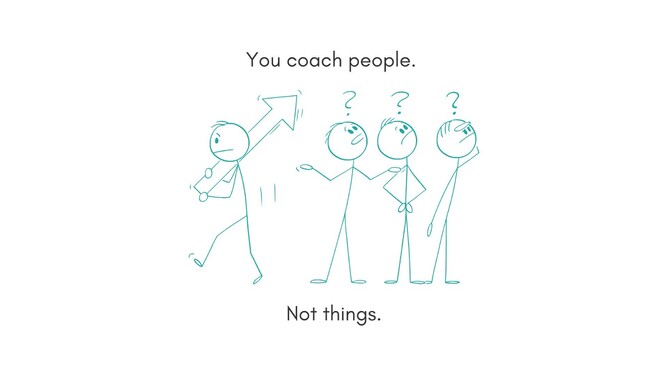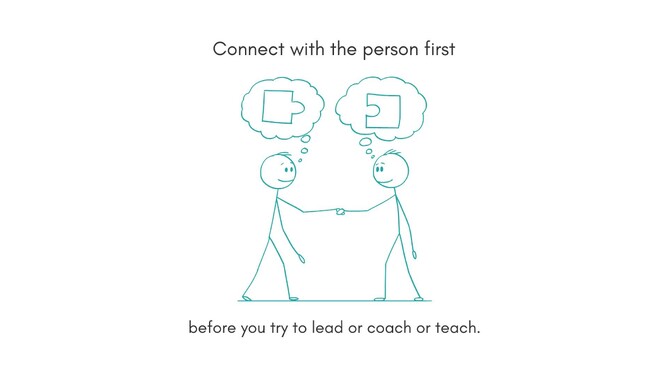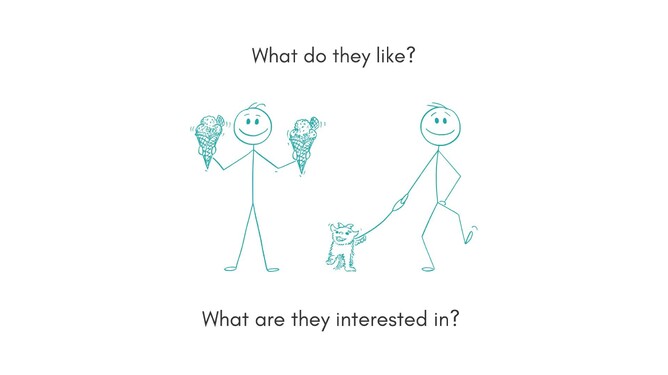What is this really about? Or who?
Early on during my teacher education, I had a lecturer who challenged us, his class full of teacher trainees, to think differently about what we were doing and what we were training to become. He had overheard us time and time again when we said, 'I am training to be an English teacher. … I am training to be a PE teacher. … I am training to be an Art teacher,' etc.
One day, he said to us, ‘When you finish here, you won’t teach English, you will teach students English. You won’t teach Art, you will teach students Art. You won’t teach PE, you will teach students PE.’ He is right, of course. What is implied in all of this is that there is someone to be taught.
Interestingly, this often remains implied. And we often forget about exactly those people. We are so concerned with the specific subject knowledge and skill of a particular area of expertise that we focus much less on who is to learn all this.
I have found the same to be true in coaching. I’ve often heard coaches introduce themselves saying, ‘I am a rowing coach, hockey coach, basketball coach, netball coach, football coach, running coach,’ etc.
The same thing applies:
You coach people, not rowing.
You coach people, not hockey.
You coach people, not basketball, not netball, not football, and not running.
And don’t get me wrong, there is specialist knowledge in all those fields of coaching as there is specialist knowledge in all those areas of teaching I mentioned above.
But none of that matters if you forget that, at its core, teaching and coaching are about the people in front of you.
None of your specialist knowledge matters in that context if you don't know how to connect with the people in front of you.
None of it.
The fundamental knowledge and skill have to be about connecting with and supporting people to do or understand something that, thus far, they have been unable to understand or do.
You can think about this at work, too. We often use ‘thing’-focused job titles, like Project Manager, IT Support, Head of Communication, Marketing Coordinator, etc. and yet, within all those titles, there are people implied.
Usually, project managers don’t manage the project; they manage the people who are working on the project, and, usually, the head of communications doesn’t head the communications, but rather leads the people who work in the area of communication. The same is true if you are in any kind of leadership role. Lead of Production. Lead of Performance Analysis. Head of <......> (insert whatever you like, usually, the people are only implied.)
I’d encourage you to make the people explicit. Connect with the person first, before you look to connect with them in their role. Who are they? What do they like? What (and who) is important to them?
We have conventions that focus only on the surface level. When we introduce ourselves, we focus on our names, role titles, and perhaps the companies or organisations we work for, as well as the place we live or work. What about your favourite ice cream flavour or your favourite colour? What about your interest in mammals or trains? What about your enjoyment of puzzles or music?
I find this fascinating. Anything to do with people is messy and a little difficult to do. It’s also much less tangible and concrete than a ‘project’ or ‘communication’ would suggest. We assume that if we know ‘rowing’, we must be able to be a rowing coach and that by knowing ‘Art’ and ‘English’, and ‘PE’, we must be able to be teachers of all those things.
We also know that some of the best athletes actually didn’t end up being great coaches, and we know that some of the world’s most renowned experts don’t make the best teachers. Just because you know or can do stuff well, that does not mean you can teach or coach people in it equally well. To do that, you need to be able to connect with people. You have to be curious about people, about who they are, about what they care about. And to do that, you can’t leave people implied. You need to make them the focus.
Where in your life are people implied but not explicitly talked about? Where does the language suggest we focus on a thing? And what opportunities do you see to, perhaps, connect with the person first?
Athletes often find themselves defined by the sport they ‘do’, e.g. I am a cyclist, I am a sprinter, I am a ballet dancer, I am a football player. And others often define themselves by their jobs, eg. I am an accountant, a teacher, a carpenter, a lawyer, and so on. Sebastian Vettel, former Formula 1 driver, offered a different way of looking at his identity in his retirement video. He shared that, yes, he is a Formula 1 driver, and yes, he loves the sport. And yet, he emphasises that this is not the only thing that defines him, that his identity is more complex than that. If you haven’t seen the clip, watch it here.
If you were to introduce yourself like he did, what would you say? How would you describe yourself? Which small facts and facets of your life and identity would you include? And what interests you most about other people? Ask them that next time.
Make the implied people explicit, if only in your head. You will think differently about what you are trying to do. Instead of running a Book Club, a Run Club, or a Dinner Club, you help people connect over books, running, or dinner. Without the people, there is no club.
This may be a little philosophical this week, but I encourage you to think about where in your life people are implied, where in your life you are trying to focus on getting a ‘thing’ done, when really, you need to connect with the people involved in it. Where in your life are you trying to change a ‘thing’, when, instead, you need to connect with the people and change their view or approach?
That is perhaps enough to ponder for this week. Keen to hear what you think.
If you have found this interesting, please share it. Till next time. And if you would like to receive these blogs as a newsletter straight into your email inbox, subscribe here.
Key Points:
Focus on people, not things.
People are often implied, which is interesting, because they are usually what makes the difference.
Becoming aware of this can help shift your attention to what makes the biggest difference - supporting people.
Reflective Questions:
When and where do you leave people implied when you introduce yourself?
If you change your perspective on that and put people at the centre, how does that change your approach?
Where are you at the receiving end of being ‘implied’? How does that feel? What would make it feel better?
Bonus: Think about how you would introduce yourself if you could not share your work, age, gender, country of origin, or ethnicity. What would you say?




